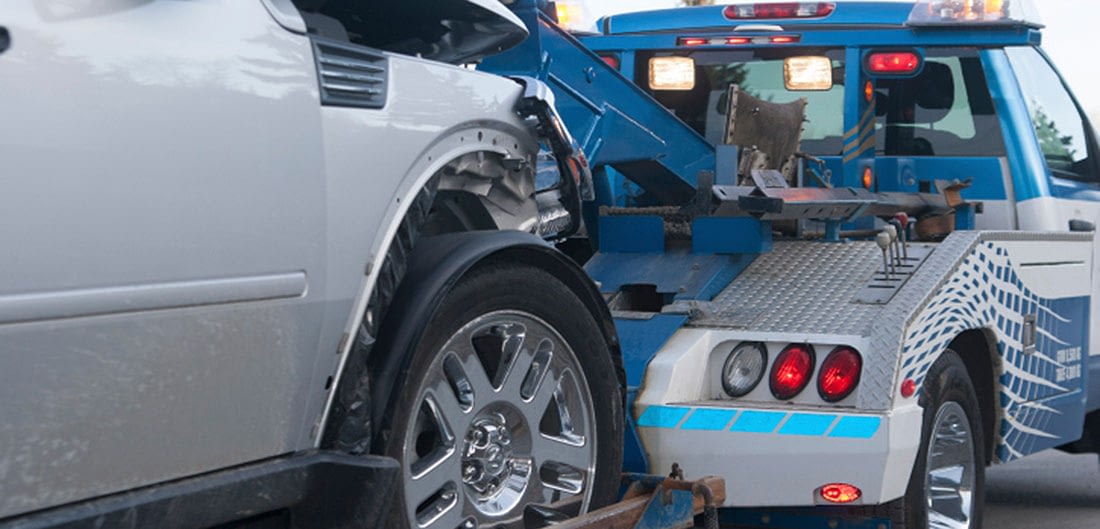
The first step in determining whether a car is totaled (or, in insurance terms, a total loss) is to calculate its actual cash value (ACV) at the time of the loss. The ACV is how much your vehicle is worth after factoring in depreciation. On average, vehicles depreciate more than 20 percent in the first year and approximately 10 percent each additional year for the first five years, according to Carfax data.
How is total loss value calculated?
At our agency, a claims adjuster assesses your vehicle’s condition. Then, they run the make, model, and year of your vehicle through an industry-leading vendor database. The database generates an accurate estimate of your vehicle’s market value based on its mileage, condition, options, and other comparative factors. The database also considers the demand for a particular vehicle in your local market. For example, a pickup truck could fetch a higher price in a rural area than in a heavily populated city.
Another factor is the resale value of the parts and the metal. This factor, known as the “salvage value,” is considered along with the cost of repair.
If a vehicle’s cost of repair plus its salvage value exceeds the vehicle’s ACV, it is typically declared a total loss. (One exception is certain state laws that require insurance companies to declare a vehicle a total loss even if the cost of repair and salvage value are less than the ACV.)
How much does insurance pay for a totaled car?
If your vehicle is a total loss, you have two choices: You can take the cash settlement for the ACV of your vehicle, or, if your state allows, you can “retain the salvage” and request the title and damaged vehicle be returned to you.
Most customers choose to take the settlement value, which is the figure generated by the industry-leading vehicle valuation database. Payment goes to the customer if the vehicle is owned outright. If there’s a lienholder, such as a bank or a credit union, payment goes to that lienholder. (Anything left over after paying the lienholder, however, goes back to the customer.) All payments are made after subtracting the customer’s deductible.
What insurance can help pay for a totaled car?
The two most common are collision coverage and comprehensive coverage. If you have these optional coverages on your auto policy, you have protection up to the actual cash value amount if your vehicle is declared a total loss. Collision coverage protects you if you hit another car or overturn. Comprehensive coverage protects against events like fire, vandalism, or hitting a deer.
What happens when your car is totaled, and you still owe money on it?
It’s true: A new car depreciates when you drive it off the lot. Since the cash payout for a totaled car is based on actual cash value – not the amount you have left on your car loan – you could be in a tough spot if your car is totaled and you still owe money.
Good news: There’s a way to protect your investment. Consider adding the Auto Security Coverage Endorsement1 to your auto policy for a few extra dollars per month. If you have a lease or loan on your vehicle, the endorsement will help if you owe more on the vehicle than what it’s worth. Talk to your agent about how this coverage works.
ERIE® insurance products and services are provided by one or more of the following insurers: Erie Insurance Exchange, Erie Insurance Company, Erie Insurance Property & Casualty Company, Flagship City Insurance Company and Erie Family Life Insurance Company (home offices: Erie, Pennsylvania) or Erie Insurance Company of New York (home office: Rochester, New York). The companies within the Erie Insurance Group are not licensed to operate in all states. Refer to the company licensure and states of operation information.
The insurance products and rates, if applicable, described in this blog are in effect as of January 2024 and may be changed at any time.
Insurance products are subject to terms, conditions and exclusions not described in this blog. The policy contains the specific details of the coverages, terms, conditions and exclusions.
The insurance products and services described in this blog are not offered in all states. ERIE life insurance and annuity products are not available in New York. ERIE Medicare supplement products are not available in the District of Columbia or New York. ERIE long term care products are not available in the District of Columbia and New York.
Eligibility will be determined at the time of application based upon applicable underwriting guidelines and rules in effect at that time.
Your ERIE agent can offer you practical guidance and answer questions you may have before you buy.

A better insurance experience starts with ERIE.
Haven’t heard of us? Erie Insurance started with humble beginnings in 1925 with a mission to emphasize customer service above all else. Though we’ve grown to reach the Fortune 500 list, we still haven’t lost the human touch.
Contact Stanly Insurance Services today to experience the ERIE difference for yourself.
